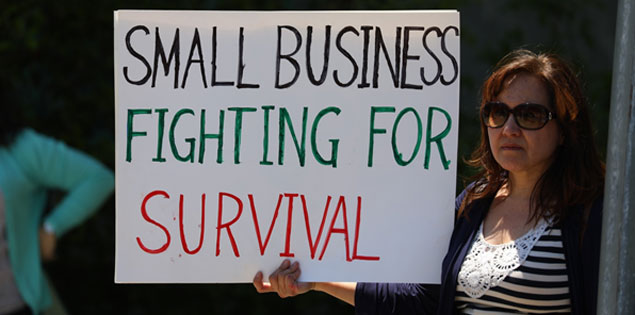Entrepreneurship remains an important pathway for women empowerment especially in the rural areas. With the COVID-19 pandemic affecting the survival, revival and recovery of women-owned enterprises- which are the hardest hit – is a big challenge. A majority of these enterprises comprise of Micro, Small and Medium Enterprises (MSME). Women represent 13.3 % (8 million) of the total 58.5 million entrepreneurs in India, 82% of them in micro-units run as sole proprietorships. Recent research by Mircosave points out that as many as 82% of women-owned MSMEs stated a decrease in their income, as compared to 72% of male-owned enterprises. 90% of business around the world are under the MSME sector.
Challenges
There were several socioeconomic issues which made women vulnerable during the pandemic. Lack of access to finance for their products, low or no access to collateral, lower levels of education and digital literacy being some of them. Since majority of them are informal enterprises, there is a need for government schemes and private sector participation in order to support their aspirations and keep them economically viable. Out of some 58 million MSMEs in India, more than 40% lack access to formal sources of finance. This hampers the economic growth of these enterprises as majority of them meet their financial requirements through informal sources of finance. This unavailability of finance affects women entrepreneurs in a more pronounced manner. Since majority of women in rural areas are financially illiterate, they rely upon moneylenders to finance their enterprises. They get stuck in a debt trap as moneylenders levy extremely high interest rates on the loan given out to them. This situation gets even more critical by lack of opportunities in business and technical skills due to low awareness about the government run schemes and training programs. Also, these MSMEs are unable to sell their produce in the market due to lack of reliable transport system in place which can deliver their products to the last mile customer. The main barriers to their growth have been financial and technical hurdles. Banks do not tend to recognise women entrepreneurs as borrowers as they do not own any assets in their names to put out as collateral against loans, hence their loan application tends to get rejected and the paper work is endless. Despite the advent of technology and increase of mobile phone users, a majority of women in rural areas use their husband’s or son’s phone to avail the schemes which are actually meant for them.
Initiatives and Way Forward
In 2018, the Telangana government launched Women Entrepreneurs (WE) Hub, which is India’s only and first state led incubator to nurture women-entrepreneurs. This platform aids women-led enterprises from inception to final delivery to the consumer, entailing provision of financial and physical capital and technical support. 16 out of 25 start-ups have been provided adequate finance with loans up to about US $2.7 million.
UN Women has allowed State Bank of India (SBI) to launch a Women Livelihood Bond scheme. It is as an innovative financial tool to drive social impact. This allows the private sector the opportunity to invest in women-led enterprises while SBI can raise low-cost funds. This will help women’s access to institutional credit along with support to scale up their businesses, subsequently encouraging rural economies and job creation. The absence of Industrial Training Institutes (ITI) in rural areas, makes such bond scheme vital for women empowerment as expansion in their enterprises creates more employment opportunities at the grassroot level.
Financial institutions (FI) can tap into this ‘talented and profitable population’ by providing customised products and services which meet the needs of these women-owned enterprises. Digitalization of financial services and collaboration amongst the women using technology can make a huge impact in uplifting the socio-economic status of these women entrepreneurs. Development of business skills and technology literacy through trainings and awareness camps both at private and government level will empower the women to make their own business decisions. One key aspect to examine is that whether the schemes, skills and training programs meant for women at rural level are having the desired impact in actually empowering their entrepreneurial skills or not. This information is missing and needs to be captured for a sustainable business enterprise to prosper in the future. Initiatives by the government like the Training of Rural Youth for Self-Employment (TRYSEM) schemes which aims at rural youth in the age group of 18-35 years are beneficial as they develop basic entrepreneurial skill which help in developing income generating opportunities for many others.
Bibliography

